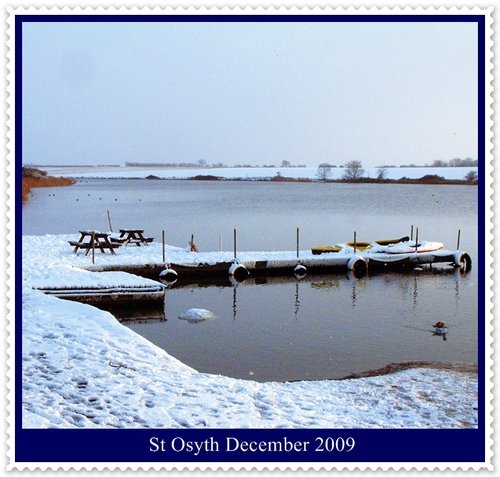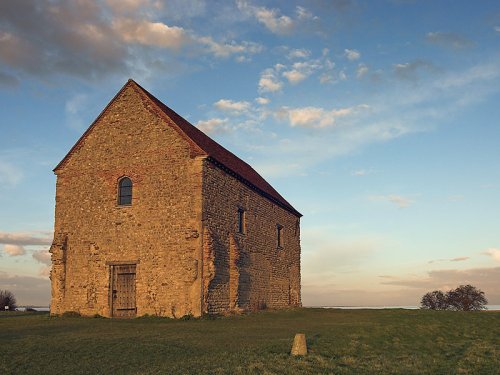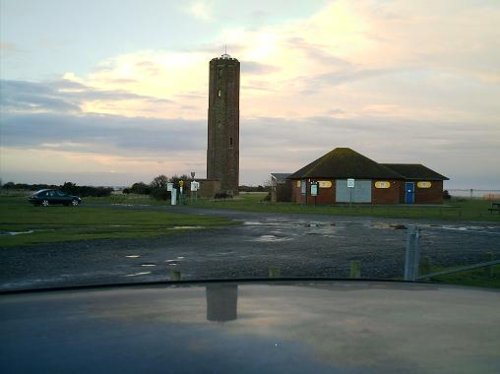Please login or click here to join.
Forgot Password? Click Here to reset pasword
The ruins of St.Osyth's Priory are the most picturesque and impressive range of monastic buildings in Essex. The priory dates largely from the 12th-century, standing in a beautiful location at a meeting point of the rivers Stour and Blackwater, close to a waterside village of immense charm.
There are a couple of legends surrounding St. Osyth, one is that she was the wife of a 7th-century East Anglican King who was beheaded by the Danes in AD 653, the other is that it was Osyth herself who was martyred. It is said that as abbess of the Priory, she was captured by the Danes, taken to a nearby wood and when she refused to worship their gods, they cut off her head.
The Priory has an illustrious history, the estate was purchased from Edward VI by Sir Thomas Darcy in the same year that he was created Lord Darcy of Chich. On his death the estate passed to his son who entertained Queen Elizabeth I. At a later date, the Priory passed into the hands of the Savage family, but they chose not to live there. Half way through the 18th century the Earl of Rochford began to live there, he made notable alterations, particularly to the landscape of the surrounding park in which he planted trees brought back from Lombardy, France.
When he went to inspect the camp at Colchester, George III stayed at The Priory as guest of the fourth earl. He must have enjoyed his visit for he later presented the earl with two exquisite paintings of himself and Queen Charlotte in their coronation robes. Other Royalty and members of the aristocracy visited.
Dappled by the fading summer sun, and set amidst stunning parkland, it is easy to see what a glorious building this must have been. The magnificent Tower gateway has rich tracery, niches and is covered in ornaments. The three ancient towers, rise up dwarfing other parts of the buildings to form a landmark seen from the sea. These beautifully preserved romantic ruins posses a aura of magic, and no matter which of the legends concerning St.Osyth you choose to believe, they remain unequalled in their splendour,
and are well worth seeing.

in the county of Essex
(0.3 miles, 0.5 km)The village is noted for its medieval Priory, a Grade I listed building which started life as a foundation for Augustinian Canons around 1127, it later became an abbey which was eventually dissolved in 1539...

a Seaside Town in the county of Essex
(2.3 miles, 3.7 km, direction NW)A medieval port on the Colne estuary, Brightlingsea was once an associate member of the Cinque Ports. The history of the town goes back to Roman times and it's industry has always been linked to the sea...

a Seaside Town in the county of Essex
(3.4 miles, 5.4 km, direction E)Clacton-on-Sea is a fine Victorian resort that offers visitors and enjoyable and jolly time...

a Seaside Town in the county of Essex
(7.9 miles, 12.7 km, direction E)Frinton, is a sedate area which retains a refined atmosphere and many gracious Victorian properties from when the then small seaside village was developed as a resort in the 1860's by Sir Richard Cooker...

in the county of Essex
(8.5 miles, 13.6 km, direction NW)Greenstead Church is said to be the oldest wooden building in the world. Well worth a visit....
All towns in Essex
..

The Chapel of St Peter-on-the-Wall is the oldest church in England, having been built by St Cedd in 654ad. It sits right on the.....

..

Colchester is an ancient town situated on the site where a Roman city once stood. It is most famous for its massive Norman.....

Built above colourful fossil rich cliffs by Trinity House in 1721, the Naze Tower rises 85 feet into the air and affords visitors.....